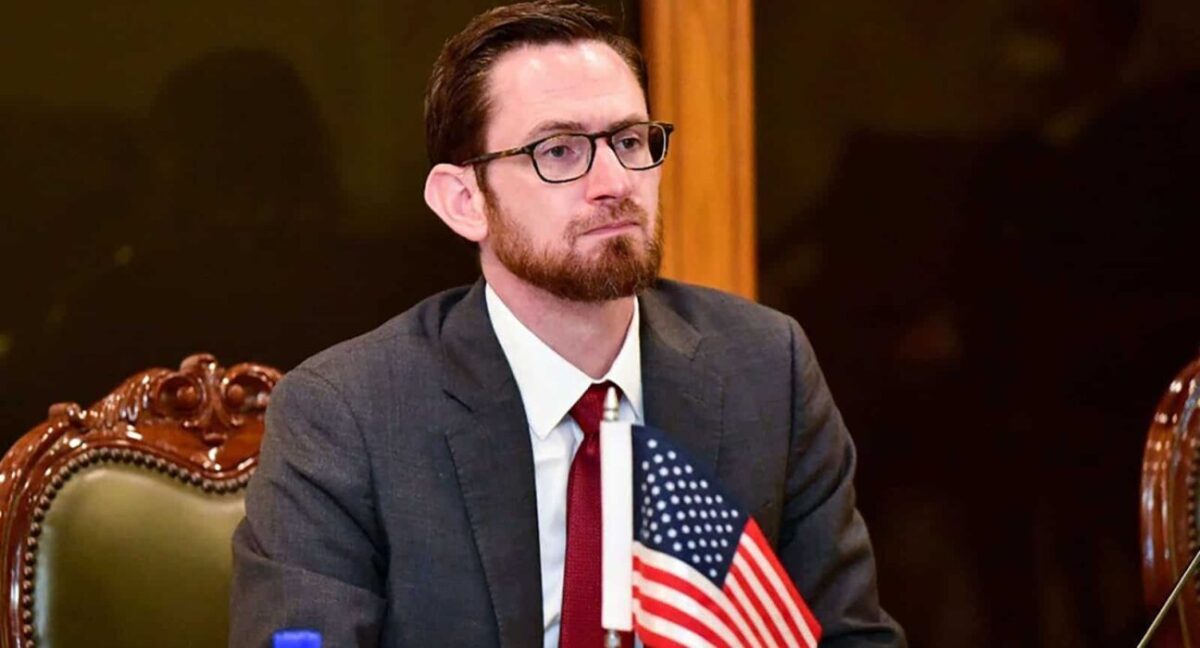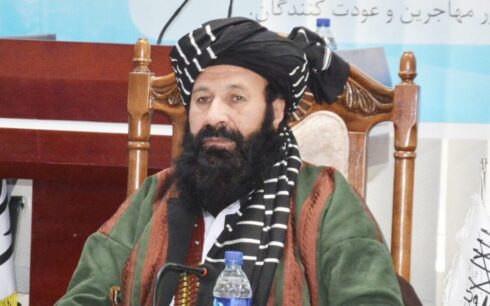The US Special Representative for Afghanistan Thomas West is expected to meet with numerous stakeholders this week to seek solutions to Afghanistan’s “compounding challenges” made worse by the Taliban’s latest ban on local women working for the United Nations in Afghanistan.
According to a statement issued by the US State Department on Tuesday, West will visit Qatar, the UAE and Turkey between April 11 and 18.
In Doha he “will meet with Qatari colleagues, Afghan civil society leaders, and partner missions. In the UAE, SRA West will meet with Emirati counterparts, Afghan business and thought leaders. In Istanbul, he will hold consultations with Afghan political leaders, journalists, humanitarian professionals and human rights activists,” read the statement.
The purpose of his trip is to conduct “outreach in the region to secure input as the international community seeks solutions to Afghanistan’s compounding challenges, made worse by the Taliban’s recent decisions to limit women’s participation in humanitarian operations and ban them from their vital work for the UN.”
West’s visit comes amid a growing outcry among the international community following yet another order by the Taliban against women – this time against women working for the UN in Afghanistan.
Earlier Tuesday, the United Nations issued a statement condemning the Taliban’s decision and said that through this ban, the Taliban seek to “force the United Nations into having to make an appalling choice between staying and delivering in support of the Afghan people and standing by the norms and principles we are duty-bound to uphold.”
The UN in Afghanistan also said that it had instructed all its national personnel – women and men – to stay home for the time being. Only limited and calibrated exceptions have been made for critical tasks.
In addition, the Special Representative of the Secretary-General for Afghanistan and head of the United Nations Assistance Mission in Afghanistan (UNAMA), Roza Otunbayeva, has initiated an operational review period up to 5 May 2023.
During this period, the UN in Afghanistan will conduct the necessary consultations, make required operational adjustments, and accelerate contingency planning for all possible outcomes.
Since August 2021, the United Nations has strived to stay and deliver to ease the unprecedented suffering of the Afghan people, but said their work in the country is driven by the humanitarian imperative to save lives and guided by the principles of humanity, neutrality, impartiality, and independence.
UNAMA said however that the latest ban, an extension of the already unacceptable restrictions placed in December 2022 on NGO partners at the frontline of aid delivery, deliberately discriminates against women and challenges the ability of the people of Afghanistan to continue accessing lifesaving and sustaining assistance and services.
It therefore breaches human rights and humanitarian principles, UNAMA added.





